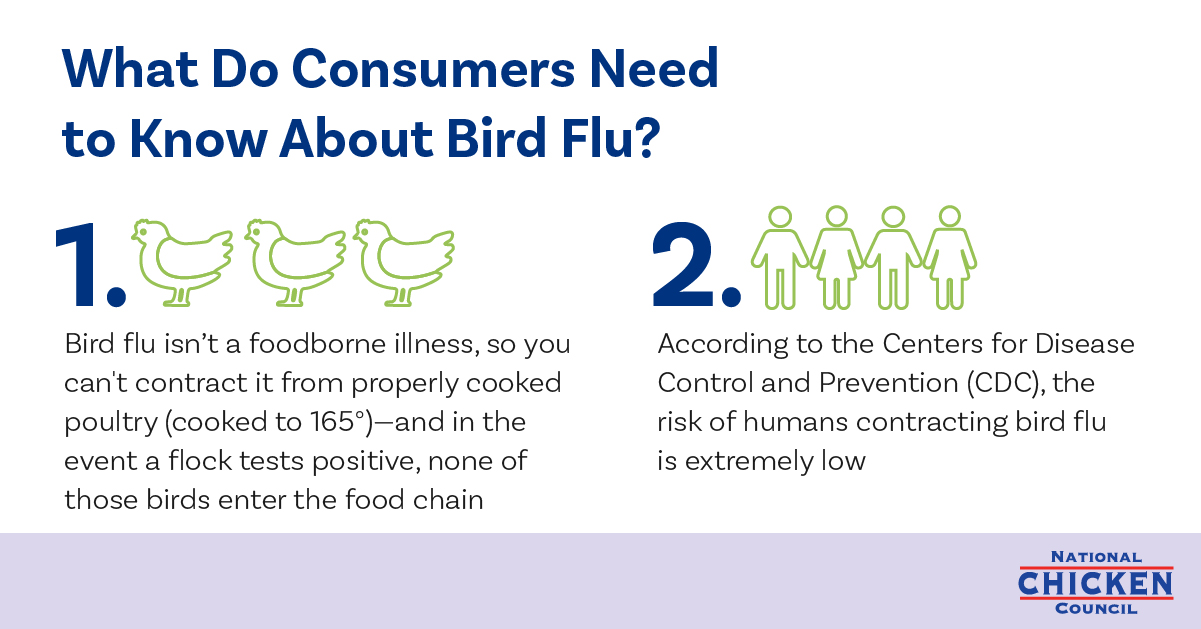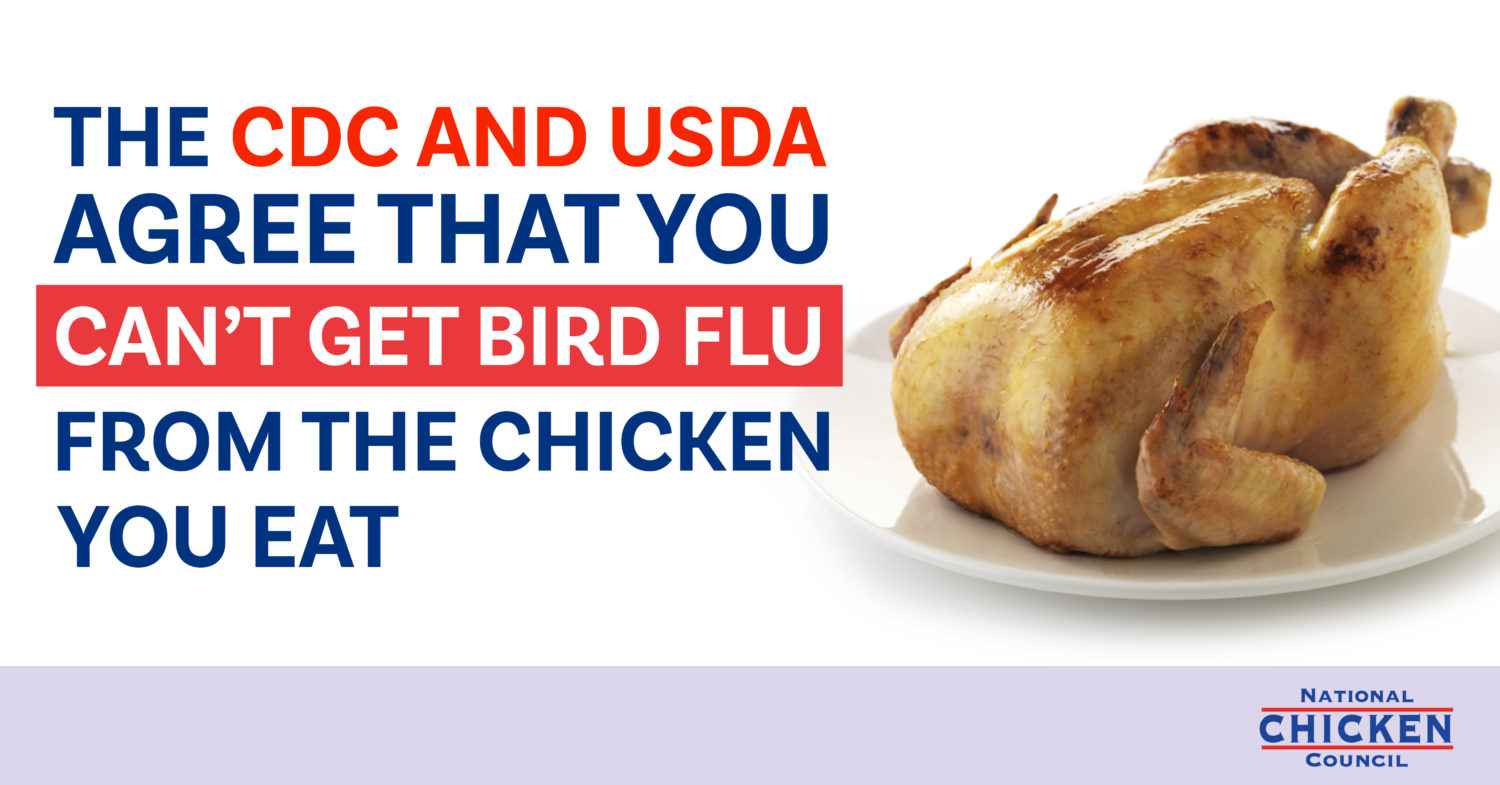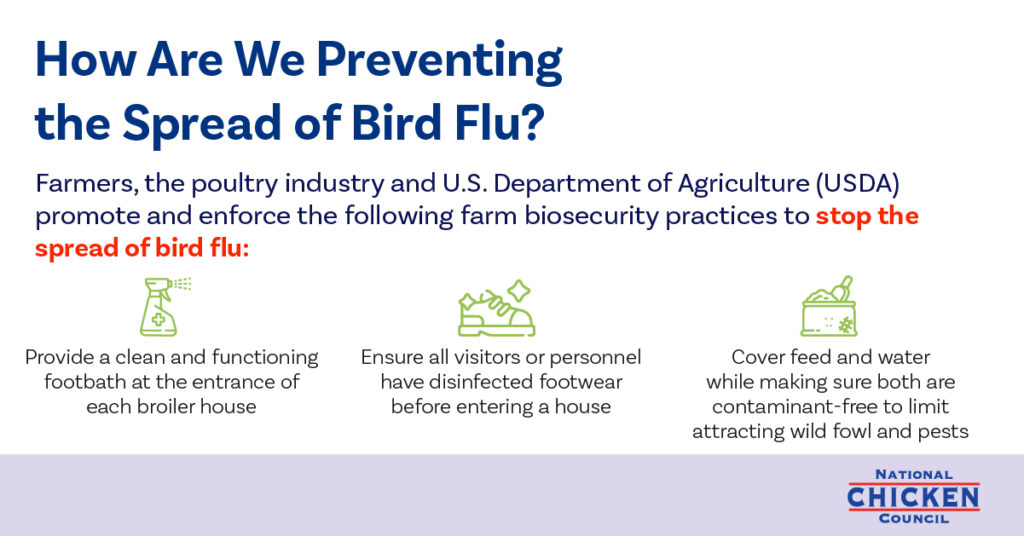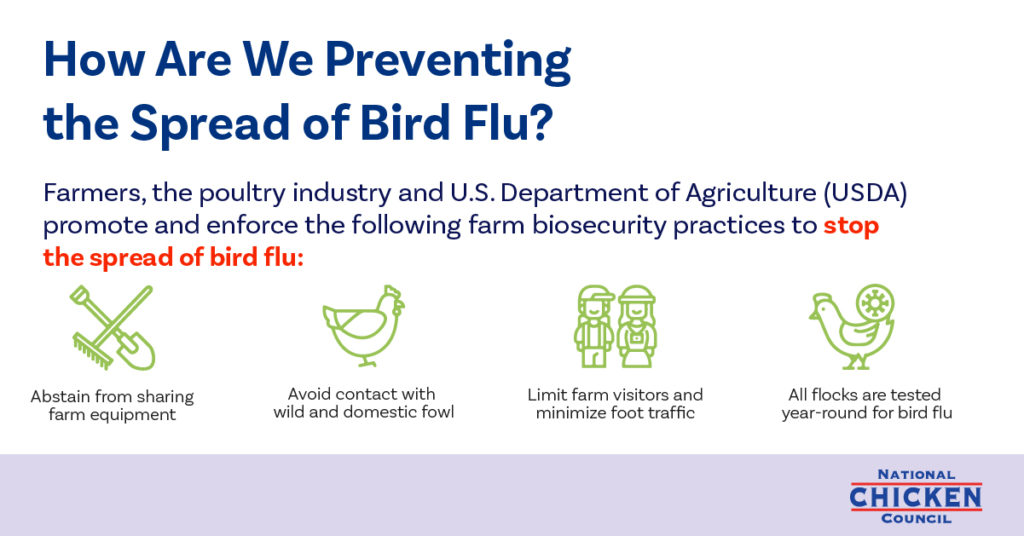What do I need to know about bird flu?
What is bird flu?
Just like humans, birds can get the flu. Bird flu, technically known as avian influenza, is a disease that affects birds, including poultry like chickens, turkeys and ducks. First and foremost, consumers need to know that bird flu is NOT a foodborne illness, so you can’t contract it from eating poultry that hasn’t been cooked properly. And in the event a flock does test positive, it won’t enter the food chain. Bird flu is caused by a virus that is passed from bird to bird through their saliva, nasal secretions and/or feces. Other susceptible birds pick up the virus by directly touching the infected bird’s fluids or by touching a surface that has been contaminated by the fluids.

There are two classifications of bird flu—low pathogenic avian influenza (LPAI) and highly pathogenic avian influenza (HPAI). Birds who contract LPAI sometimes do not exhibit any symptoms or show mild ones, like ruffled feathers or a decrease in egg production. Birds with HPAI exhibit more severe symptoms such as lack of energy or appetite, lack of coordination, coughing, sneezing or nasal secretions. HPAI may also cause high mortality.
Can people catch bird flu?
The risk of humans contracting bird flu is very low, according to the Centers for Disease Control and Prevention (CDC). Scientists say bird flu is not easily transmitted from birds to humans, and “sustained transmission” from human to human has NOT occurred. Despite the fact that millions of birds have gotten sick and died, there are no recorded cases of “sustained transmission”.
In April 2022, the Colorado Department of Public Health and Environment found an individual working on a poultry farm tested positive for bird flu. The question remains if this person was actually infected, or the positive result was due to exposure to the virus. No other human exposures are known at this time.
What is the status of HPAI incidents in the U.S.?
The United States Department of Agriculture’s (USDA) Animal and Plant Health Inspection Service (APHIS) tracks confirmed cases of HPAI.
APHIS is working closely with state animal health officials on joint incident responses. State officials quarantined the affected premises, and birds on the properties were depopulated to prevent the spread of the disease.
Birds from the flocks will not enter the food system.
What are chicken producers doing to prevent bird flu?
Bird flu is a serious issue that chicken farmers closely monitor together with the USDA. The U.S. has the most robust monitoring and surveillance program in the world – and detailed plans in place to minimize spread among flocks and eliminate the virus completely. All U.S. flocks are tested prior to processing for bird flu. If a single bird in a flock were to test positive for HPAI, then none of those birds would be allowed to enter the food supply.
Collectively, farmers, the USDA, and the poultry industry continue to monitor for the virus closely and have intense surveillance and comprehensive biosecurity measures to keep flocks protected. Strict biosecurity practices on the farm are key to preventing chickens from contracting bird flu.
See biosecurity practices in action and learn how farmers monitor the health of the chicken flock.
What happens if there is an outbreak of bird flu on a chicken farm?
In the event of an outbreak, the poultry industry has strict procedures and works directly with state and federal governments to identify and eliminate the problem and reduce the spread of the disease.
When bird flu is detected, the following 5-step response plan is carried out:
1. Quarantine
The farmer ensures the affected flock and any nearby equipment stays in one area.
2. Eradicate
The affected flock is quickly and humanely euthanized following methods approved by the American Veterinary Medical Association.
3. Test
USDA protocols and testing requirements are followed to ensure the farm is free of bird flu before a new flock is allowed to arrive.
4. Disinfect
The affected farm is thoroughly disinfected to ensure any traces of the virus are destroyed.
5. Monitor
Surveillance of wild birds in a broad surrounding “control” area.
No chicken from avian flu-affected flocks are ever allowed to enter the food chain.
What can I do at home to make sure my chicken is safe from bird flu?
Bird flu is not a foodborne illness, which means you cannot contract it from eating poultry that has been cooked properly. And in the event a chicken flock does test positive, it will not enter the food chain.
But as always, you should follow proper handling and cooking when preparing raw chicken. Get safe food handling tips at Chicken Roost.
For more information on bird flu, visit the USDA’s Animal and Plant Health Inspection Service’s webpage.




